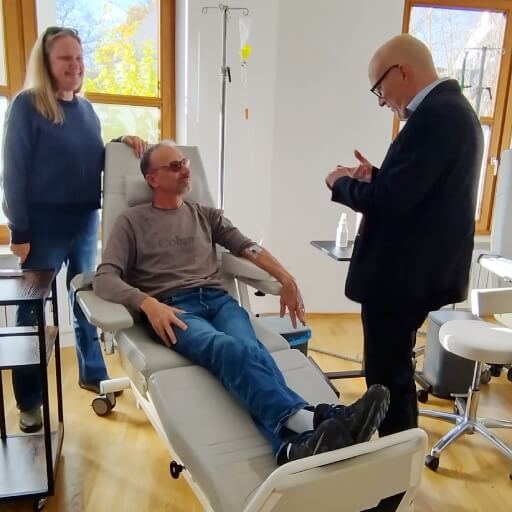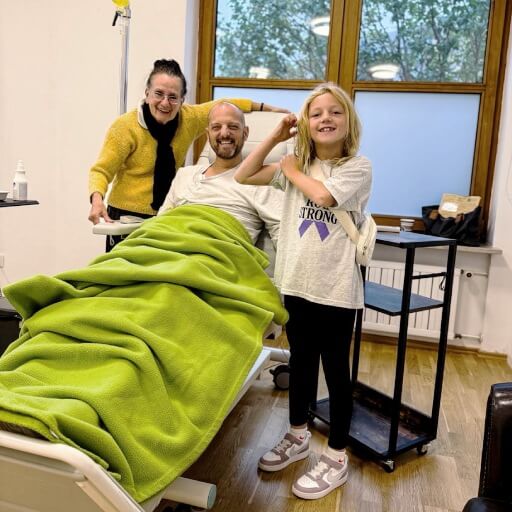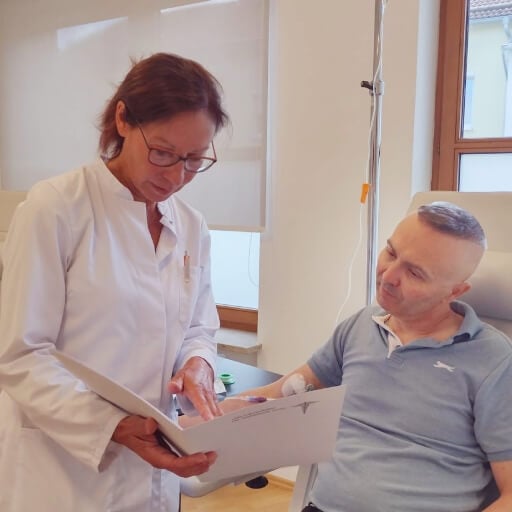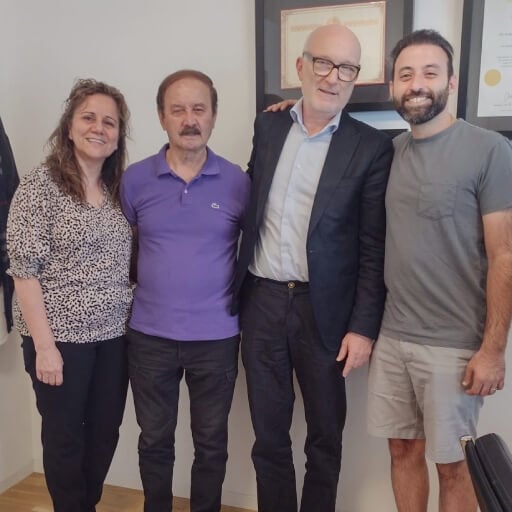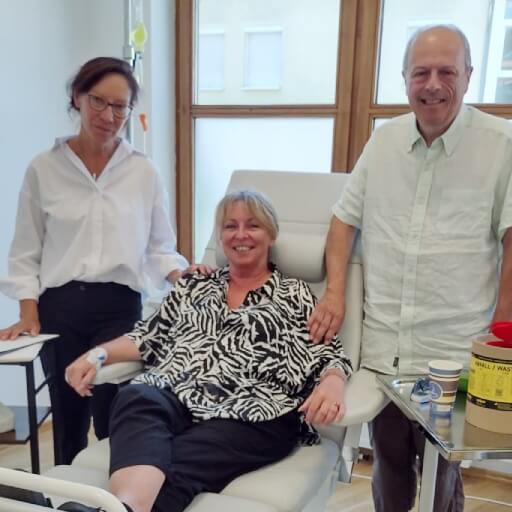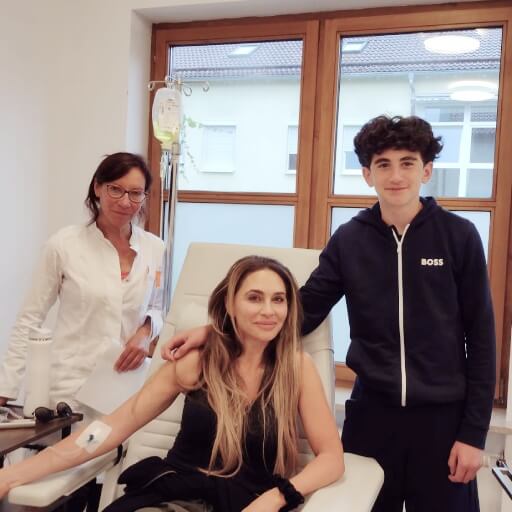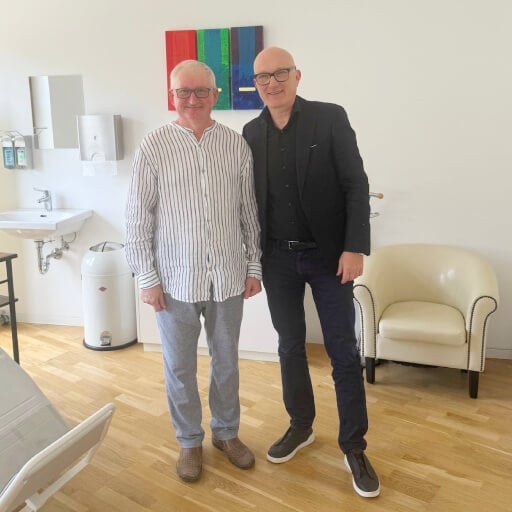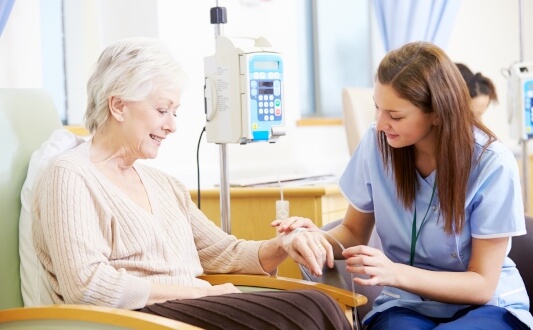Melanoma is one of the most aggressive forms of skin cancer, responsible for the majority of skin cancer-related deaths despite accounting for only a small percentage of skin cancer cases [1]. According to the World Health Organization [2], more than 325,000 new cases of melanoma were diagnosed globally in 2020, and over 57,000 people died from the disease in the same year. The number of cases continues to rise, particularly in fair-skinned populations and regions with high UV exposure, such as Australia, North America, and Europe.
What makes melanoma dangerous is its ability to spread rapidly. Once it becomes metastatic melanoma – spreading to the lungs, brain, liver, or bones – treatment becomes significantly more challenging, and the prognosis often worsens [1]. Traditional cancer therapy may not always be effective in such cases, especially when the tumor is resistant to treatment or recurs after initial remission.
In response to these challenges, cancer immunotherapy has been introduced as a new approach. Rather than attacking tumor cells directly, it activates the body's own immune system to initiate strong immune responses that recognize and destroy cancer cells. One of the most innovative immunotherapies currently being used is dendritic cell therapy for melanoma, a targeted strategy that trains the immune system to detect and eliminate melanoma throughout the body [3].
Germany has become a leading destination for melanoma treatment, with its advanced medical infrastructure and growing expertise in cell therapy. In 2025, this country's melanoma treatment options increasingly include innovative immune-based therapies, especially dendritic cell vaccination, offered in world-famous oncology clinics.
Understanding Melanoma: From Diagnosis to Metastasis
Melanoma arises from melanoma cells, which originate in melanocytes – the pigment-producing cells located in the skin. While less common than other types of skin cancer, such as basal cell or squamous cell carcinoma, melanoma is far more dangerous due to its aggressive behavior and high risk of metastasis. It accounts for only about 1% of skin cancer cases but causes the vast majority of skin cancer deaths [4].
Melanoma is categorized into four stages [1]:
- Stage I and II involve localized tumor cells that are confined to the skin. At these stages, melanoma patients can often be cured with surgical excision.
- Stage III indicates that the cancer has spread to nearby lymph nodes or surrounding tissues.
- Stage IV represents metastatic melanoma, where the cancer has traveled to distant organs such as the lungs, liver, brain, or bones. As mentioned above, this is the most difficult stage to treat and is associated with poor survival outcomes.
Once melanoma becomes metastatic, the five-year survival rate drops significantly. According to the American Cancer Society [5], while the survival rate for localized melanoma is about 99%, it falls to 35% once the disease spreads to distant parts of the body.
Moreover, relapse is a major concern even after successful treatment in the early stages. Microscopic melanoma cells can evade detection and later reactivate, often leading to a more aggressive recurrence [1]. This is why long-term immune system surveillance is critical in cancer patients previously diagnosed with melanoma.
Traditional therapies, such as surgery, radiation, and chemotherapy, can remove or destroy visible tumor cells, but they often fail to eliminate microscopic disease or prevent recurrence. Chemotherapy, in particular, has limited effectiveness against metastatic melanoma, with response rates generally below 20% [1].
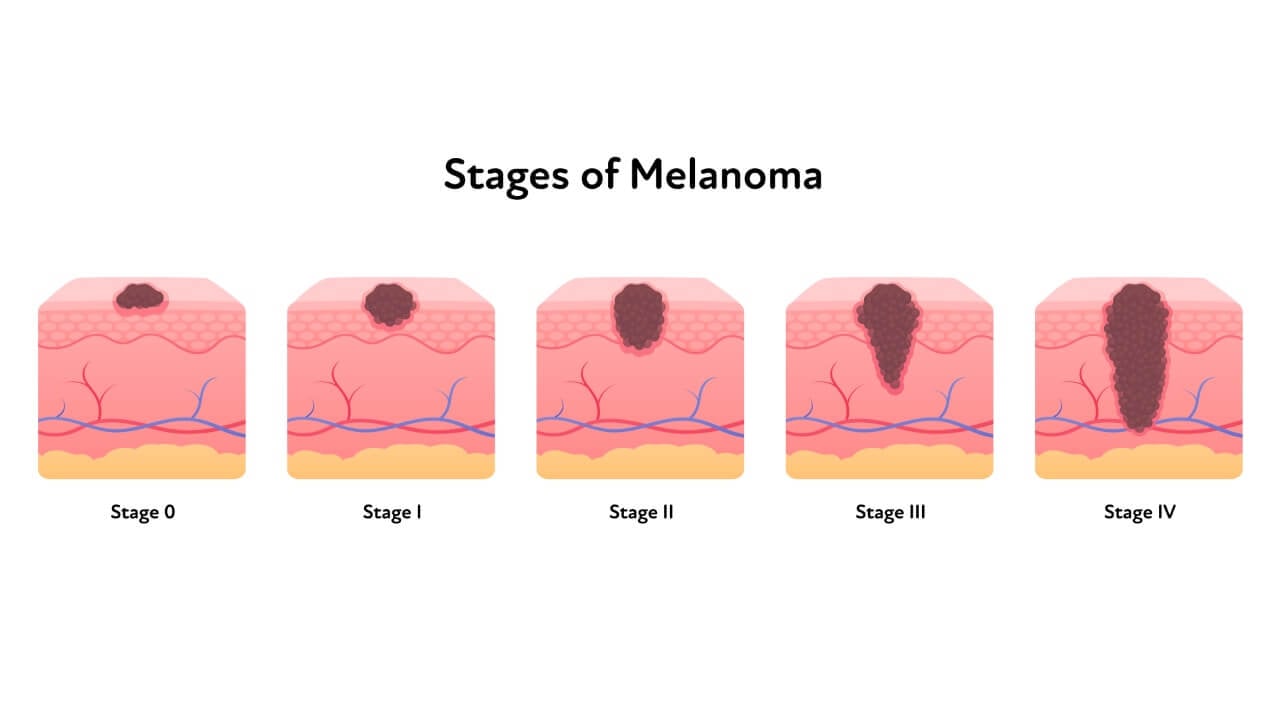
What Is Dendritic Cell Therapy for Melanoma?
Dendritic cell therapy for melanoma is a form of personalized cancer immunotherapy that utilizes the power of the patient's own immune system to recognize and eliminate tumor cells. Unlike traditional treatments that directly target cancer with drugs or radiation, this method aims to train immune cells to identify and attack melanoma throughout the body – even after the active treatment has ended [3, 6].
What Are Dendritic Cells?
Dendritic cells are a specialized type of immune cell that serve as the body's most effective antigen-presenting cells. Their role is to detect foreign or abnormal substances, such as melanoma cells, capture them, and present fragments (called tumor antigens) to other immune cells like cytotoxic T-lymphocytes. This process initiates a cascade of immune responses that result in the destruction of tumor cells [3, 6].
The concept of dendritic cell therapy is rooted in the work of Ralph Steinman, who first discovered dendritic cells in the 1970s. His contributions to immunology earned him the 2011 Nobel Prize in Physiology or Medicine, awarded posthumously for demonstrating how dendritic cells play a role in adaptive immunity – especially in the context of infections and malignancies like melanoma [6].
How Dendritic Cell Therapy Works in Melanoma
Dendritic cell-based immunotherapy involves several steps that personalize the treatment for each patient [3, 6]:
- Blood Collection: A sample of the patient's blood is collected.
- Cell Isolation: Monocytes (precursor immune cells) are extracted and cultured in a laboratory to become dendritic cells.
- Tumor Antigen Loading: These dendritic cells are then exposed to melanoma-specific antigens, derived from the patient's tumor or lab-synthesized.
- Vaccine Creation: The mature, activated dendritic cells are formulated into a therapeutic vaccine.
- Vaccine Administration: The vaccine is reintroduced into the patient's body – most often via injection into lymph nodes – to trigger systemic immune responses.
Once inside the body, these activated dendritic cells stimulate T-cells and natural killer cells to:
- Trigger specific immune responses that recognize melanoma cells based on shared tumor antigens
- Attack and destroy both primary and metastatic cancer cells
- Form immune memory to detect future recurrences
How Dendritic Cell Vaccines Are Made and Administered in Melanoma
Step 1: Blood Collection and Monocyte Isolation
The process begins with a simple blood draw, where approximately 150-200 ml of the patient's blood is collected – similar to a standard blood donation. This blood sample contains monocytes, a type of immune cell that can mature into dendritic cells. The collection is performed on an outpatient basis with no hospitalization required, making it a convenient and minimally invasive procedure. This step is essential to obtain the building blocks of the vaccine [3, 6].
Step 2: Laboratory Cultivation and Antigen Loading
In the lab, the extracted monocytes are cultured with specific growth factors (e.g., GM-CSF and IL-4) to differentiate them into immature dendritic cells. Once a sufficient number is reached, these cells are exposed to tumor antigens, which are typically obtained through liquid biopsy (circulating melanoma cells in blood). Other possible options are tissue biopsy or surgical excision and lab-synthesized peptides matching melanoma-specific mutations.
Through this exposure, dendritic cells become "trained" to recognize melanoma and tumor cells. The now activated dendritic cells are matured and prepared for injection as a personalized therapeutic vaccine [3, 6].
Step 3: Vaccine Administration Methods
The method of administration directly affects the vaccine's effectiveness in triggering immune responses. Doctors select the route based on the patient's clinical condition and the stage of melanoma.
Main administration methods include:
- Intradermal injection (into the skin):
- Activates ~1-2% of the injected immune cells
- Often used in early-stage patients
- Subcutaneous injection (under the skin):
- Simple but less effective (<1% activation)
- Occasionally used when other methods are unsuitable
- Injection into lymph nodes (guided by ultrasound):
- Most effective route: activates up to 80% of injected dendritic cells
- Recommended for advanced or metastatic melanoma
- Intravenous infusion:
- Least effective for melanoma, as dendritic cells tend to accumulate in the liver, spleen, and bone marrow
- Rarely used unless no other option is available
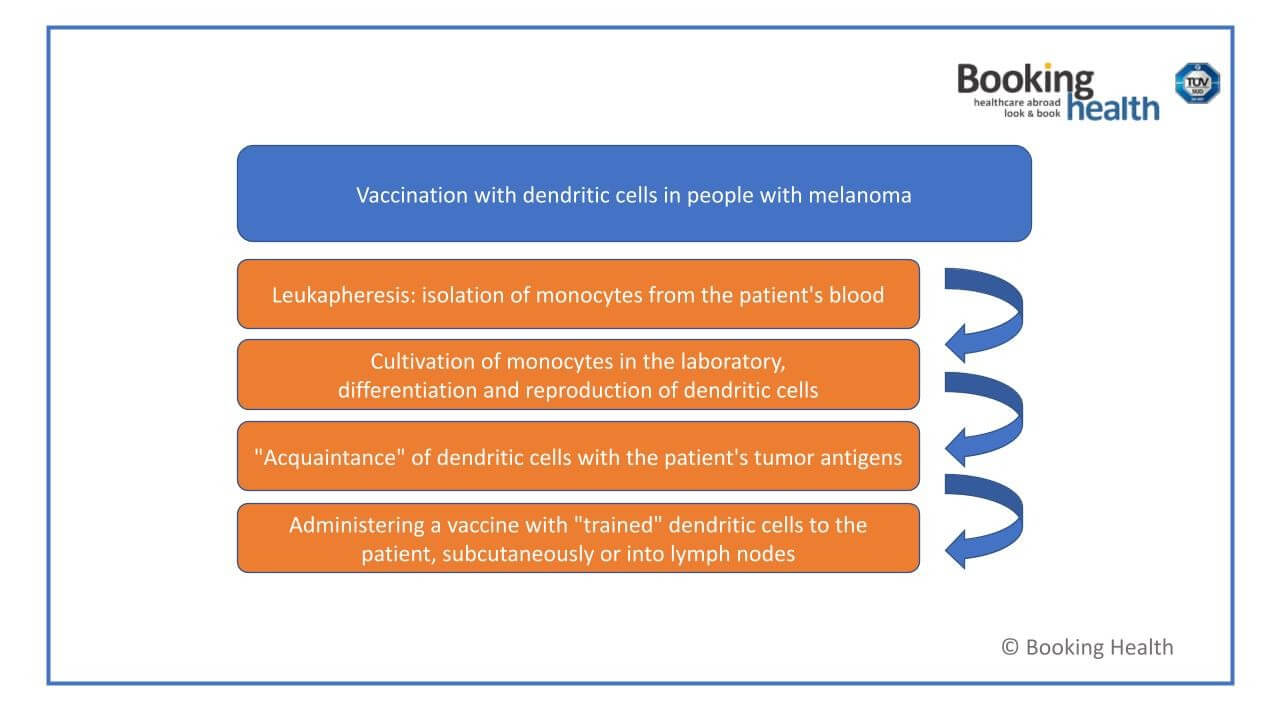
Tailored to Melanoma Biology
The dosing schedule, route of administration, and vaccine composition are adjusted based on [6]:
- Melanoma stage
- Tumor burden
- Presence of metastases
- Patient's overall immune profile
For example, patients with early-stage melanoma might receive intradermal vaccines post-surgery, while those with widespread melanoma benefit most from lymph node-targeted injections.
This high level of customization ensures that dendritic cell vaccines align with the patient's unique tumor biology, improving outcomes and minimizing adverse effects.
Request Dendritic Cell Treatment
Who Benefits from Dendritic Cell-Based Vaccination in Melanoma?
Dendritic cell-based vaccination is a versatile treatment option that benefits a wide range of melanoma patients, from those newly diagnosed to individuals with advanced, treatment-resistant disease. This therapy can be used at different stages of melanoma management, including [3, 6]:
- Early-Stage Melanoma (Stage I-II): For melanoma patients who have undergone surgical excision of the primary tumor, dendritic cell-based vaccination can significantly reduce the risk of recurrence. While surgery alone removes visible tumors, microscopic cancer cells may remain and trigger relapse. The vaccine promotes long-term immune responses and immune surveillance, helping the body eliminate residual cells before they can form new tumors.
- Advanced or Metastatic Melanoma (Stage III-IV): Patients with metastatic melanoma, especially those who cannot undergo complete surgical removal or whose tumors have spread to organs like the lungs, liver, or brain, often see improved disease control with dendritic cell therapy. It works systemically, inducing broad immune responses that train immune cells to search for and attack cancer throughout the body.
- Chemotherapy- or Targeted Therapy-Resistant Cases: Some cancer patients develop resistance to standard treatments like chemotherapy or BRAF-targeted drugs. Unlike those therapies, dendritic cell vaccines do not rely on the presence of specific genetic mutations. This makes them ideal for:
- Patients who are BRAF-negative
- Those with non-resectable tumors
- Patients who previously failed conventional therapies
One of the most significant advantages of dendritic cell-based immunotherapy is that it works regardless of BRAF mutation status or tumor antigenic profile. While targeted therapies are limited to certain subgroups, dendritic cell-based approaches can be applied more broadly and are especially valuable for cancer patients lacking other viable options. These patients often benefit from the unique ability of dendritic cells to initiate customized immune responses unaffected by common resistance mechanisms.
Dendritic Cell Treatment Results: What Do Melanoma Clinical Studies Show?
The clinical success of dendritic cell therapy for melanoma has been demonstrated in various studies and real-world applications, particularly in leading oncology centers across Germany. As a form of cancer immunotherapy, it not only stimulates immune responses, but also offers a safer and more durable treatment alternative compared to conventional therapies.
Efficacy by Melanoma Stage
Outcomes vary by cancer stage, but across the spectrum, patients receiving dendritic cell vaccines generally experience:
| Melanoma Stage | Disease Control with Dendritic Cell Therapy | Conventional Therapy Alone |
|---|---|---|
| Stage I/II | Up to 95% recurrence prevention post-surgery | Approx. 70-75% |
| Stage III | Up to 75% disease control with combination therapy | Under 60% |
| Stage IV | Up to 65% disease stabilization | Less than 35% |
These results reflect the systemic immune engagement that dendritic cell therapy achieves, making it beneficial for high-risk and metastatic melanoma patients.
Mechanism Behind the Melanoma Outcomes
The clinical impact of dendritic cell-based cancer immunotherapy is primarily due to the activation of multiple immune responses and pathways [3, 6]:
- Cytotoxic T-Lymphocytes (CTLs): Once educated by activated dendritic cells, CTLs directly attack melanoma cells by releasing enzymes that destroy their membranes.
- Natural Killer (NK) Cells: These cells enhance immune defense by identifying and destroying tumor cells that evade typical antigen presentation.
- Immune Memory Formation: A lasting benefit of dendritic cell vaccination is the creation of long-lived memory T-cells. These cells "remember" the specific tumor antigens and allow the immune system to respond rapidly to recurrence, offering long-term protection.
Evidence from Melanoma Oncology Centers in Germany
Several oncology centers in Germany have reported exceptional results using this therapy. Typically, patients who undergo dendritic cell therapy show significant improvement in:
- Progression-free survival
- Overall survival
- Quality of life
Moreover, when used as part of a multimodal strategy – including surgery, hyperthermia, or photodynamic therapy – the vaccines further enhance the immune system's ability to detect and eliminate melanoma and tumor cells.
Dendritic Cell Therapy vs Other Melanoma Treatments
Conventional Therapies: Benefits and Limitations
- Chemotherapy
- Non-specific, systemic treatment
- Often associated with significant side effects (nausea, hair loss, immune suppression)
- Low response rates in advanced melanoma (typically below 20%)
- Targeted Therapy (e.g., BRAF/MEK inhibitors)
- Effective only for patients with specific mutations (BRAF V600E/K)
- Can lead to rapid resistance and relapse
- Side effects include fever, fatigue, and joint pain
- Checkpoint Inhibitors
- Immune-based drugs that "release the brakes" on T-cells
- Beneficial in many patients, but can cause severe immune-related adverse events
- Response rates range from 30% to 50%, with some patients showing no benefit
Dendritic Cell Therapy for Melanoma: A Personalized Advantage
In comparison, dendritic cell therapy, as a form of melanoma immunotherapy, offers several advantages:
- High specificity: Targets only tumor cells through tumor-associated antigens, sparing healthy tissue
- Fewer side effects: Personalized nature reduces risk of immune overactivation
- Long-term immunity: Creates memory T-cells for sustained surveillance
- No dependency on genetic markers: Works even in BRAF-negative patients
- Can be used in both early and late stages of skin cancer
The Role of Combined Melanoma Treatment
In Germany, many oncology centers now favor combined treatment approaches to improve outcomes:
- Surgery + dendritic cell vaccine: Reduces risk of relapse in early-stage patients
- Photodynamic therapy (PDT) + immunotherapy: Sensitizes tumors before vaccination
- Hyperthermia + cell therapy: Increases tumor immunogenicity and vaccine efficacy
This approach enhances immune activation while addressing melanoma from multiple angles, leading to more durable responses and improved survival.
Exclusive Interview with Prof. Dr. Med. Frank Gansauge on Dendritic Cell Therapy for Melanoma
One of the most influential figures in modern cancer therapy using dendritic cells is Prof. Dr. Med. Frank Gansauge, a leader in the field of immunotherapy. With over 22 years of clinical experience, Prof. Gansauge has helped shape and refine immune system-based therapies for cancer, with a particular focus on highly personalized protocols that combine classical and advanced methods.
With a background in surgical medicine, Prof. Gansauge later shifted his focus to oncology and immunology after witnessing the limitations of traditional treatments in managing aggressive cancers like melanoma. At his clinic in Germany, he leads a multidisciplinary team that develops customized dendritic cell vaccines based on each patient's tumor biology and immune profile.
What Makes His Approach Unique?
- Personalization: Each vaccine is created from the patient's own immune cells and tumor antigens
- Combination Therapy: Vaccination is often paired with hyperthermia, PDT, or surgery for enhanced effects
- Patient-Centered Care: Emphasis on quality of life, holistic treatment, and long-term immune monitoring
Patients under Prof. Gansauge's care often report improved outcomes, reduced recurrence rates, and minimal side effects. His clinic has become a destination for international patients seeking innovative melanoma immunotherapy.
Read the full interview with Prof. Gansauge to discover:
- The scientific foundation of dendritic cells and their role in enhancing immune responses
- The precise laboratory process involved in developing personalized dendritic cell vaccines
- The ongoing debate between immunotherapy and chemotherapy for melanoma, and how dendritic cell therapy complements conventional treatments such as surgery and radiation
- Real-life success stories of patients who achieved complete remission through dendritic cell-based therapy
- The exceptionally low incidence of side effects compared to traditional cancer therapies
- What sets Prof. Gansauge's clinic apart in its approach to dendritic cell vaccination, including personalized protocols and advanced immunological monitoring
- Exciting future applications of dendritic cell technology, including potential uses in treating autoimmune diseases, allergies, and innovations in anti-aging medicine
For individuals diagnosed with melanoma – particularly those with advanced or metastatic disease – Prof. Gansauge offers not only deep expertise but also hope. His interview is essential reading for anyone exploring melanoma immunotherapy or considering dendritic cell therapy as part of a comprehensive cancer treatment strategy.
Prof. Frank Gansauge's Revolutionary Approach: Combining Classical Treatments and Dendritic Cell Therapy
Cost and Logistics of Dendritic Cell Treatment for Melanoma in Germany
Germany is recognized as a global leader in dendritic cell therapy for cancer, particularly for melanoma immunotherapy. The country offers access to some of the most advanced immunology laboratories and oncology centers, providing personalized treatments that are not widely available elsewhere. In many parts of the world, dendritic cell-based therapy remains experimental or unapproved, while in Germany, it has been integrated into clinical practice in select certified clinics with excellent results.
The average price in Germany for a full course of dendritic cell therapy ranges from €20,000 to €38,000, depending on the patient's condition, the complexity of the treatment plan, and the number of vaccine doses required. This typically includes:
- Initial consultation and diagnostics
- Blood collection and monocyte isolation
- Laboratory production of activated dendritic cells
- Vaccine administration over several sessions
- Follow-up assessments and immunological testing
It is important to note that German clinics maintain strict safety and quality standards under EU medical regulations, ensuring transparency in treatment cost and consistency in care outcomes.
A Medical Journey: Every Step of the Way with Booking Health
Finding the best treatment strategy for your melanoma can be overwhelming. After undergoing multiple interventions, receiving conflicting opinions, and navigating complex diagnoses, many patients feel lost and exhausted. In such circumstances, it is tempting to settle for the most readily available option or to follow generalized treatment protocols – often associated with significant side effects – rather than seeking a more targeted and effective approach like dendritic cell therapy.
To make an informed decision and receive a personalized cancer management plan tailored to your specific clinical picture, consult the experts at Booking Health. For over 12 years, Booking Health has been helping patients from around the world access the most advanced medical innovations, including dendritic cell therapy. Our team specializes in coordinating care at the top oncology clinics in Germany and provides full support throughout every stage of your treatment journey.
We offer:
- Assessment and analysis of your medical documentation
- Development of a personalized treatment planning program
- Selection of the most suitable clinic for dendritic cell therapy
- Preparation and translation of medical documents for submission
- Pre-travel consultations with German specialists
- Expert guidance and communication during your hospital stay
- Coordination of follow-up care once you return home
- Full management of formalities and international logistics
- Visa and travel assistance
- A personal coordinator and medical interpreter available 24/7
- Transparent budgeting with guaranteed pricing – no hidden costs
Booking Health service ensures that every patient is treated as a unique individual – not just a case. When it comes to your health, only proven experts with a global reputation for excellence should be entrusted with such an important mission.
Begin your path to recovery by reaching out to a medical advisor at Booking Health. We will help you explore the possibilities of innovative melanoma treatment through dendritic cell therapy – available in Germany's most advanced clinics.
Innovation in Cancer Care: Dendritic Cell Stories with Booking Health
Frequently Asked Questions About Dendritic Cell-Based Immunotherapy In Melanoma
Send request for treatmentMelanoma is a type of skin cancer that can spread to other parts of the body. Dendritic cell therapy involves using the patient's dendritic cells, modified to target melanoma, to stimulate the immune system to attack the cancer more effectively.
Advantages include a targeted treatment approach, minimal side effects compared to conventional therapies, and the potential for long-term remission. This therapy is particularly beneficial for patients with advanced melanoma.
Effectiveness varies based on individual patient factors and the stage of melanoma. However, many patients have experienced significant improvements, with some achieving long-term remission and improved quality of life.
Most side effects are mild, such as fever and fatigue. Severe side effects are rare but can occur, requiring close monitoring during treatment to manage any adverse reactions promptly.
Yes, dendritic cell therapy can be used alongside other treatments such as surgery, radiation therapy, and targeted therapies. Combining treatments can enhance overall effectiveness and improve outcomes.
Yes, several advanced oncology centers in Germany offer dendritic cell therapy for melanoma. These facilities specialize in personalized treatment and maintain modern laboratories capable of producing individualized therapeutic vaccines using the patient's own immune cells. Booking Health can assist with full support and access to advanced melanoma management options.
Yes, dendritic cell therapy is generally well tolerated and associated with minimal side effects. Since the treatment uses the patient's own dendritic cells, the risk of adverse reactions is very low. It is a safe option even for late-stage melanoma patients or those unresponsive to standard treatments.
Dendritic cell therapy is a form of melanoma immunotherapy that activates the patient's immune system to recognize and destroy tumor cells. This therapeutic vaccine is personalized and created from the patient's blood, making it a targeted and highly effective option for managing melanoma.
The therapy uses lab-cultured dendritic cells that are "trained" with tumor antigens from the patient's melanoma. Once reintroduced into the body, these immune cells stimulate a strong and specific immune system activation, helping to eliminate melanoma cells and prevent relapse.
Yes, dendritic cell therapy is often part of a combined treatment approach. After surgical removal of the primary tumor, the vaccine enhances immune surveillance and reduces the risk of recurrence. It can also be used alongside photodynamic therapy or hyperthermia in advanced cases.
The treatment cost for dendritic cell therapy in Germany typically ranges from €20,000 to €38,000, depending on the individual treatment plan and the number of vaccine doses required. These melanoma immunotherapy expenses generally cover diagnostics, lab work, and vaccine administration. The price in Germany reflects the high standards of care and advanced laboratory infrastructure. Booking Health ensures transparent pricing with no hidden fees and access to fixed packages.
Several top clinics in Germany offer dendritic cell therapy, including LDG Laboratories Dr. Gansauge, a leading center with extensive experience in melanoma immunotherapy. The clinic specializes in personalized treatments using advanced lab technology. Booking Health can help you choose from the best cancer immunotherapy centers based on your needs and medical condition.
To begin your Germany melanoma treatment, contact a Booking Health service consultant. Our team will guide you through every step of treatment planning, including medical file review, clinic selection, scheduling, and travel support. If you are wondering how to start dendritic cell therapy, Booking Health ensures an efficient and stress-free experience.
In patients with stage I–II melanoma dendritic cell therapy provides up to 95% prevention of recurrence after surgery, while traditional methods provide about 70–75%. By activating the body’s own immunity this approach helps to destroy residual cancer cells and prevent disease from returning.
In stage III melanoma combining dendritic cell therapy with other methods allows to achieve up to 75% control of the disease, while conventional treatment provides less than 60%. Immunotherapy enhances the effect of standard methods, reducing the risk of progression.
Thus, even in stage IV melanoma, dendritic cell therapy can stabilize the course of the disease in up to 65% of patients while traditional treatment is effective in less than 35% of cases. This makes immunotherapy a promising method for controlling the metastatic process.
In Germany melanoma patients receive dendritic cell therapy only following thorough evaluation. Treatments are individually tailored and administered under close supervision. Also they are integrated with standard care to enhance immune response.
Choose treatment abroad and you will for sure get the best results!
Authors:
This article was edited by medical experts, board-certified doctors Dr. Nadezhda Ivanisova, and Dr. Bohdan Mykhalniuk. For the treatment of the conditions referred to in the article, you must consult a doctor; the information in the article is not intended for self-medication!
Our editorial policy, which details our commitment to accuracy and transparency, is available here. Click this link to review our policies.
Sources:
[1] American Cancer Society. Treatment of Melanoma Skin Cancer, by Stage. https://www.cancer.org/cancer/types/melanoma-skin-cancer/treating/by-stage.html
[2] World Health Organization. Global Burden of Cutaneous Melanoma in 2020 and Projections to 2040. https://www.iarc.who.int/wp-content/uploads/2022/03/pr311_E.pdf
[3] Annals of Translational Medicine. Dendritic Cell Therapy in Melanoma. https://pmc.ncbi.nlm.nih.gov/articles/PMC5653516/
[4] AIM at Melanoma Foundation. 2025 Melanoma Facts & Statistics. https://www.aimatmelanoma.org/facts-statistics/
[5] American Cancer Society. Survival Rates for Melanoma Skin Cancer. https://www.cancer.org/cancer/types/melanoma-skin-cancer/detection-diagnosis-staging/survival-rates-for-melanoma-skin-cancer-by-stage.html
[6] Melanoma Management. Dendritic Cell Vaccines for Melanoma: Past, Present and Future. https://pmc.ncbi.nlm.nih.gov/articles/PMC6094661/
Read:
Dendritic cell therapy in cancer treatment in Germany - Vaccination against cancer
Article menu:
- Understanding Melanoma: From Diagnosis to Metastasis
- What Is Dendritic Cell Therapy for Melanoma?
- How Dendritic Cell Vaccines Are Made and Administered in Melanoma
- Who Benefits from Dendritic Cell-Based Vaccination in Melanoma?
- Dendritic Cell Treatment Results: What Do Melanoma Clinical Studies Show?
- Dendritic Cell Therapy vs Other Melanoma Treatments
- Exclusive Interview with Prof. Dr. Med. Frank Gansauge on Dendritic Cell Therapy for Melanoma
- Cost and Logistics of Dendritic Cell Treatment for Melanoma in Germany
- A Medical Journey: Every Step of the Way with Booking Health
- Frequently Asked Questions About Dendritic Cell-Based Immunotherapy In Melanoma
Don't know where to start?
Contact Booking Health
